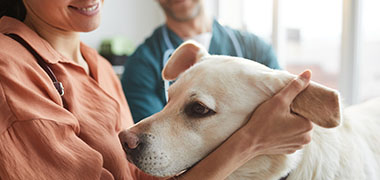
AI Occupational Exposure score unavailable For more insight, research the specific tasks and skills required for the role.
Explore all careersA Wildlife Carer cares for injured native animals and orphans until they can be released back into the wild, requiring flexibility and patience.
Get qualified to work as a Wildlife Carer with a course recognised across Australia. Speak to a training provider to learn more.
In Australia, a full time Wildlife Carer generally earns $1,200 per week ($62,400 annual salary) before tax. This is a median figure for full-time employees and should be considered a guide only. As you gain more experience you can expect a potentially higher salary than people who are new to the industry.
 Courses.com.au Team
Courses.com.au Team
The number of people working in this industry has remained stable in recent years. There are currently 16,500 people employed as an animal attendant in Australia and many of them work as Wildlife Carers. Wildlife Carers may find work across all regions of Australia.
Source: Australian Government Labour Market Insights
 Courses.com.au Team
Courses.com.au Team
If you’re interested in becoming a Wildlife Carer, consider enrolling in a Certificate III in Captive Animals. This course covers a range of topics including rescuing animals, applying first aid, rehabilitating native wildlife and caring for very young animals.
 Courses.com.au Team
Courses.com.au Team



A Wildlife Carer looks after injured or sick native animals until they can be returned to their natural habitat. You might be employed by an animal care facility or zoo or you might care for animals in your own home. Wildlife Carers may also look after baby animals who have been orphaned or separated from their parents until they are ready to be released into the wild.
Wildlife Carers need to be passionate about native animals and have excellent animal handling skills. You should be able to follow the directions of veterinary staff or animal care professionals. You’ll need to be flexible with your time and you’ll often have to work irregular hours or on weekends and public holidays. Wildlife Carers should be patient and able to deal with the unpredictable nature of wild animals.